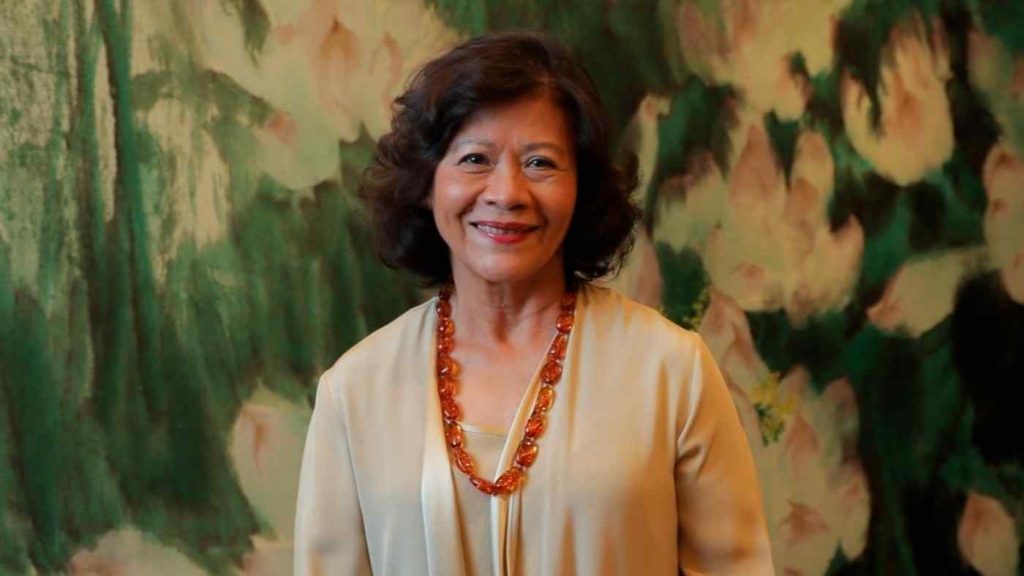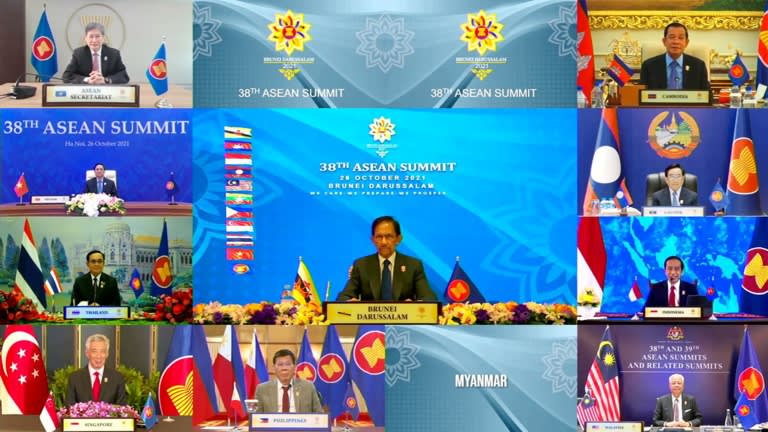New U.N. special envoy may deal with military regime more effectively than ASEAN

With the Association of Southeast Asian Nations, modest expectations are the norm. Taking two steps forward and one back is seen as a victory for the “ASEAN way,” which is based on the principles of noninterference and consensus-building among the 10 member states.
But ASEAN’s attempts to negotiate an end to the Myanmar crisis have been critically undermined by the ruling military regime’s refusal to cooperate. A new mechanism to mobilize international resources is necessary to stop Myanmar from sliding into collapse.
Frustrated by the credibility cost of its failure to make progress on Myanmar, ASEAN took the unprecedented move of barring the military regime’s chief from its virtual summit last week — the first time the leader of a member state has been excluded from such a gathering.
The tough action was backed unanimously by the other members but was largely aimed at salvaging credibility rather than developing a workable strategic plan for dealing with Naypyitaw’s recalcitrant government.
Many member states will be content to continue along the ASEAN way, reprimanding the military regime occasionally while waiting for another entry point for mediation. Some may take further action, including further sanctions. But these will have little impact on the military regime without agreement on a strategic direction or endgame. Some potential sanctions could even be considered irresponsible and perhaps counterproductive, such as a boycott of Myanmar’s economically important garment sector.

Meanwhile, Myanmar will remain an ASEAN member state, falsely claiming that it is abiding by a five-point consensus plan adopted by ASEAN in April.
The parallel National Unity Government has appointed an ambassador to ASEAN, and a few countries, including Malaysia, might break ranks by talking to the NUG if it becomes obvious that the five-point plan cannot be implemented. Cambodia, the bloc’s incoming chair, will continue to put pressure on Myanmar to comply with the consensus but has said that it is inappropriate to talk about continuing to exclude the generals “at this point in time.”
Thailand, China, India and other neighboring countries are cautious about tougher action on Myanmar and will likely follow ASEAN’s lead. Of course, they will not challenge condemnations of the military regime by international organizations and will even undertake limited on-the-ground intervention if that is needed to stem the rising flow of refugees and illicit drugs coming out of Myanmar.
In the West, many countries are still preoccupied with COVID-19 and China’s rise. Most will hesitate to wade into Myanmar’s complicated internal politics.
Against this background, the most viable route to progress lies through the United Nations, which last week announced the appointment of Noeleen Heyzer as a special envoy on Myanmar. There are two key reasons to be hopeful about this new appointment.
First, Heyzer is known for her good relations with both Myanmar’s military establishment and Aung San Suu Kyi, whose National League for Democracy government was ousted by the generals in February.
Heyzer, a former U.N. undersecretary-general and a former head of the U.N. Economic and Social Commission for Asia and the Pacific, visited Myanmar several times in the early 2000s when the country was under an earlier period of military rule. She was also a key supporter of the transition to democracy from 2011.
Some elected officials from Myanmar welcomed her appointment, hoping that she would break the political impasse. As a Singaporean, Heyzer also has important cultural and geographical links to Myanmar, in addition to her diplomatic skillfulness and ties to all conflict parties.
Secondly, she starts with a clean slate, unmarred by the failed diplomatic missions of the past. This will allow her to hold a fresh round of consultations with a broad range of stakeholders and to build trust. She can reframe the conflict and enlarge the pool of potential trade-offs to encourage both the military regime and its opponents to respond to fresh information and incentives for a mutually acceptable settlement.
It would be naive to hope for a sudden breakthrough by Heyzer alone. The conflict for which she has inherited U.N. responsibility is complex and intractable. All parties need to manage expectations and focus on rolling out a pragmatic new strategy. But Heyzer, with her strong contextual knowledge and historical connections, enjoys credibility leverage. The international community must back her by providing enforcement leverage in the form of tangible and resourceful material power.
For her part, the special envoy should introduce a new strategic assessment after consultations and undertake coordination among key international actors.
She must also mitigate the harm done by Asian noodle bowl diplomacy, in which multiple, overlapping special envoys, including emissaries of China, Japan, ASEAN and soon the U.S., have proved counterproductive in the face of the military regime’s stubbornness and manipulations. Heyzer should seek to coordinate the different envoys to lower the cost of negotiating and bargaining for both the military regime and its challengers.
Empowered with sufficient leverage, Heyzer will be able to “speak softly and carry a big stick,” as U.S. President Theodore Roosevelt once put it, in dealing with Myanmar’s conflict parties. That would go far toward mediating a resolution.
Min Zin
Min Zin is the founder and executive director of the Institute for Strategy and Policy (Myanmar), a Yangon-based think tank.

